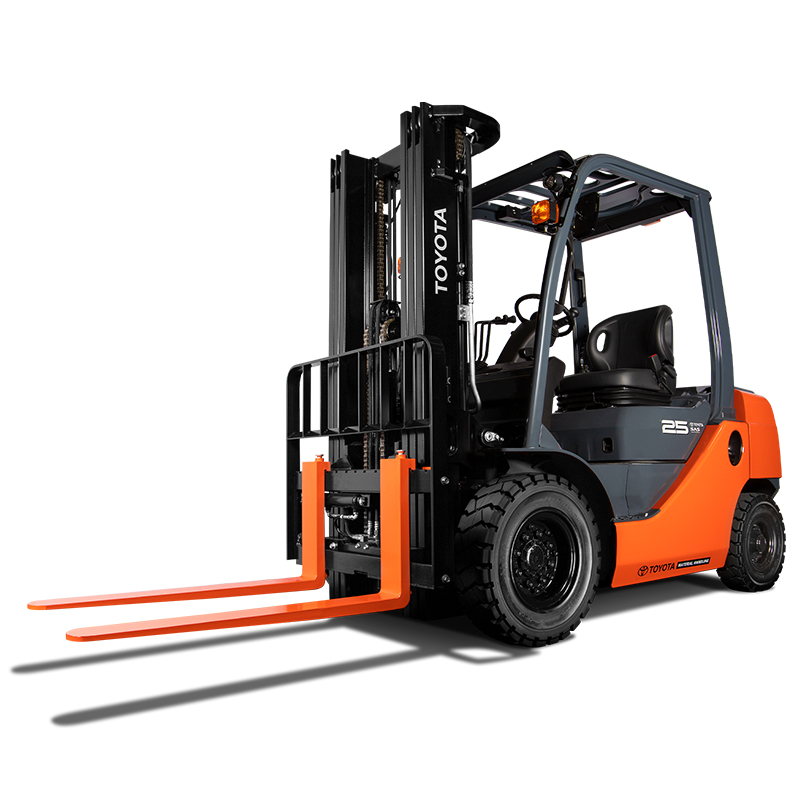Forklift Manufacturers: Pioneering Eco-Friendly Solutions
Forklift Manufacturers: Pioneering Eco-Friendly Solutions
Blog Article

In recent years, the push for sustainable practices has transformed various industries, and the forklift manufacturing sector is no exception. As logistics and warehousing operations strive to reduce their environmental footprint, manufacturers are stepping up to the challenge by developing innovative and eco-friendly solutions. The move towards greener technologies in forklifts not only helps companies meet regulatory requirements but also improves efficiency and lowers operational costs.
Leading the charge in this shift are several prominent forklift manufacturers who are redefining their product lines to incorporate electric and hybrid models, reducing reliance on fossil fuels. These advancements not only minimize emissions but also enhance the operational capabilities of forklifts in diverse working environments. With the demand for sustainable materials handling solutions on the rise, these manufacturers are not just adapting to changes; they are pioneering a new era of environmentally responsible industrial equipment.
Innovations in Eco-Friendly Forklift Design
The forklift manufacturing industry has seen significant advancements in recent years, particularly in eco-friendly design. Companies are now focusing on creating forklifts that not only excel in performance but also minimize environmental impact. The shift towards electric forklifts is one of the most notable trends, as they produce zero emissions during operation compared to their diesel counterparts. This transition helps reduce air pollution in warehouses and distribution centers, making it a healthier choice for both workers and the surrounding environment.
Another key innovation is the incorporation of advanced battery technology. Lithium-ion batteries, for instance, are becoming increasingly popular due to their efficiency, longer lifespan, and shorter charging times. These batteries require less maintenance and offer greater reliability, allowing operators to use forklifts for longer periods without the need for frequent recharging. This not only enhances productivity but also supports sustainability efforts by reducing energy consumption in the long run.
Manufacturers are also exploring the use of sustainable materials in forklift construction. By utilizing recycled and eco-friendly materials, companies can significantly lower the carbon footprint associated with the production process. Additionally, some manufacturers are implementing design practices that enhance energy efficiency and reduce waste during assembly. These innovations reflect a growing commitment within the industry to prioritize environmental stewardship while still meeting the demands of modern logistics and material handling.
Sustainable Manufacturing Practices
OEM Manual Forklift Supplier
In the quest for more eco-friendly solutions, forklift manufacturers are increasingly adopting sustainable manufacturing practices. These practices involve using environmentally conscious materials and techniques throughout the production process. By sourcing materials that are recyclable or derived from sustainable resources, manufacturers are reducing their environmental footprint. This shift not only supports the planet but also meets growing consumer demand for green products.
Another critical aspect of sustainability in forklift manufacturing is energy efficiency. Many manufacturers are implementing energy-saving technologies in their production facilities. This includes utilizing renewable energy sources such as solar or wind power to power their operations. By minimizing energy consumption and emissions, these manufacturers are setting a new standard for the industry and contributing to broader efforts against climate change.
Lastly, waste reduction is another pillar of sustainable manufacturing. Forklift manufacturers are focusing on minimizing waste generated during production by optimizing processes and recycling scrap materials. Some companies are even adopting a circular economy model, where end-of-life products are restored to create new forklifts. This innovative approach not only conserves resources but also promotes a sustainable lifecycle for forklift products, ensuring they have a minimal environmental impact throughout their usage.
The Future of Green Forklifting
As the global focus on sustainability continues to intensify, the future of green lifting solutions within the forklift industry looks promising. Manufacturers are increasingly prioritizing eco-friendly technologies, including electric and hybrid models, which significantly reduce carbon emissions compared to traditional internal combustion forklifts. Innovations in battery technology, such as lithium-ion batteries, are enhancing the efficiency and performance of these electric forklifts, making them suitable for a wide range of applications.
Moreover, forklift manufacturers are exploring alternative fuels, such as hydrogen fuel cells, that offer a potential pathway to zero-emission operation. By investing in research and development, companies are not only improving energy efficiency but also addressing the growing demand for sustainable practices in logistics and warehousing. This shift towards greener options is likely to become a dominant trend, aligning with global sustainability goals and offering businesses a way to reduce their environmental footprint.
Additionally, the integration of smart technologies, such as IoT and artificial intelligence, is transforming how forklifts are utilized. These advancements enable more efficient route planning, predictive maintenance, and energy management, further optimizing operations and minimizing energy consumption. As these innovations take hold, forklift manufacturers are poised to lead the industry towards a more sustainable and responsible future, ensuring that lifting solutions meet both operational needs and environmental responsibilities.
Report this page